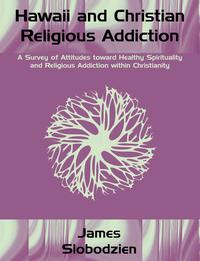A literature review was conducted on the relatively newly recognized phenomenon of religious addiction within Christianity. The symptoms, beliefs, and stages of religious addiction along with the characteristics of religiously addictive organizations are also considered. In addition a religious attitudes inventory was designed to assess general spirituality, religious addictive beliefs, religious addictive symptoms, and church leadership practices. The author surveyed ministers, psychologists, psychiatrists, and the general public to assess the relationship between religious addiction and church leadership. More specifically, the purpose of this survey was to attempt to determine if religious addictive beliefs and symptoms are more positively correlated with churches structured upon a self- selected (authoritarian hierarchial) style of leadership versus an elected (collegial) style of church leadership. In the latter, power and authority is equally vested in each of a number of elected church leaders. The results of this survey suggest the possibility of a positive correlation between the self-selected minister group and their responses to religious addictive beliefs and symptoms. Further study of a prospective nature with larger samples is necessary to define this relationship more clearly. Additional research with onsite observation and assessments is necessary to adequately verify the possible link between religious addiction and church leadership practices. Future research must replicate this study with different samples to determine whether results obtained in the present survey generalize to similar groups. Это и многое другое вы найдете в книге Hawaii and Christian Religious Addiction (James Slobodzien)
Hawaii and Christian Religious Addiction James Slobodzien
Подробная информация о книге «Hawaii and Christian Religious Addiction James Slobodzien». Сайт не предоставляет возможности читать онлайн или скачать бесплатно книгу «Hawaii and Christian Religious Addiction James Slobodzien»
